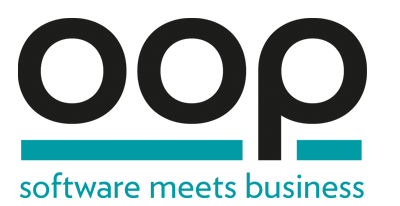
SOFTWARE MEETS BUSINESS:
Die Konferenz für Software-Architektur
03.02. - 07.02.2025

SOFTWARE MEETS BUSINESS:
Die Konferenz für Software-Architektur
03.02. - 07.02.2025

Mehr als 30 Jahre OOP-Erfahrung trifft auf moderne Innovation: Taucht mit uns tief in die wichtigsten Themen gegenwärtiger Software-Architektur ein – auf den "Virtual Deep Dives | powered by OOP".
Diese Konferenz versteht sich als Online-Ergänzung zur OOP München und bietet die Möglichkeit, sich intensiv und interaktiv mit den neuesten Trends und Best Practices in der Software-Architektur auseinanderzusetzen. Unsere Expert:innen und Branchenführer werden tiefe Einblicke in ihre Arbeitsweise geben und wertvolles Wissen teilen, das Sie direkt in Ihre Projekte integrieren können.
» Zu den Virtual Deep Dives
Die im Konferenzprogramm der OOP 2024 angegebenen Uhrzeiten entsprechen der Central European Time (CET).
In this session, two co-creators of Org Topologies™, Alexey Krivitsky and Roland Flemm, will share a method to design, assess and improve your organizational ecosystem.
They will do that by familiarizing you with a set of organizational archetypes that are easy to spot. Hopefully, you will have much better clarity on which organization ecosystem you want to build and which behaviors you expect it to exhibit.
You shall be able to take this tool home and use it as a map in your ongoing,…
You have to deal with people - always! Konflikte & Veränderungen fordern uns heraus. Wir schaffen es nicht, diese Themen zu bearbeiten. Das führt zu Unzufriedenheit & Frust.
In unserem Vortrag wollen wir konkrete systemische Prinzipien und Methoden von 2 erfahrenen Coaches mitgeben, die eine neue Perspektive auf Herausforderungen im Projektalltag geben und eine persönliche Weiterentwicklung unterstützen können. Laut Zukunftsforschern wird die systemische Perspektive immer mehr zu einer…
Keeping up is the ultimate challenge for employees and companies within fields of massively fast-emerging trends shaping how to work and deliver. Learning and spreading expertise is also key to success while householding the knowledge of older technologies to maintain systems efficiently. The classic learning approach needs too much time to scale understanding and to adopt new technologies, especially remotely. It needed to be extended to a more self-defining and community-driven model with the…
Drei Jahre nach dem Ausbruch der Pandemie haben wir viel Erfahrung mit dem Thema Home-Office gesammelt. Langsam kehrt überall wieder Normalität ein, doch am Arbeitsplatz bleibt die Frage, wie es auf Dauer weitergehen soll. Wollen wir zurück ins Büro oder lieber im Homeoffice bleiben?
In diesem interaktiven Talk geht es um Antworten auf die Frage(n): Wer will wann wie und warum wo arbeiten und vor allem: Wie bringen wir alle unter einen Hut?
Zielpublikum: Software-Entwicklungsteams
Voraussetzunge…
"Wenn es Abhängigkeiten zwischen Euren Teams gibt, passt Eure Organisation nicht zu Eurer Arbeit."
"Professionals, given the Right Environment to act with confidence, will!" Jim Benson, The Collaboration Equation
Wie geht es denn besser? Was ist ein "Right Environment"?
Ich denke, ich weiß, was wir nicht brauchen:
Ich wünsche mir praktische Arbeit an realen Fallbeispielen. Bringt Eure kniffligen Fälle mit und wir…
I think differently. Why? I have a combination of ADHD and autism incl. high sensitivity - also known as "neurodivergent". I want to share my personal story which strategies and characteristics are helping me finding my career path. I hope to inspire some of my fellow testers, especially those who also sometimes feel different. I'd like to make a stand that some typical qualities make neurodivergent people especially valuable in testing. I want to widen the horizon for colleagues and companys on…
As Agile product people we are in a unique position to influence a sustainable value chain for the development of our products. What we do matters, how we build things and what we build, matters. Or what we don’t build. In this talk we will dive into some principles of circular economy and the (radical) economic theory of Degrowth and how to apply these principles and ideas in our daily work as product people. Principles like refuse (to build something new), reuse and recycle in our whole…
Im Rahmen der Transformation zu Agilität werden agile Leader und Experten immer wichtiger, um den Erfolg einer Organisation sicherzustellen. Allerdings greifen herkömmliche Ausbildungsprogramme oft zu kurz, da sie sich ausschließlich auf das Vermitteln von Methoden-Know-how konzentrieren. Das ist jedoch nicht ausreichend, um die volle Bandbreite agiler Fähigkeiten zu entwickeln. Stattdessen müssen wir den Teilnehmern die Werte und das passende Mindset vermitteln, um eine nachhaltige Veränderung…